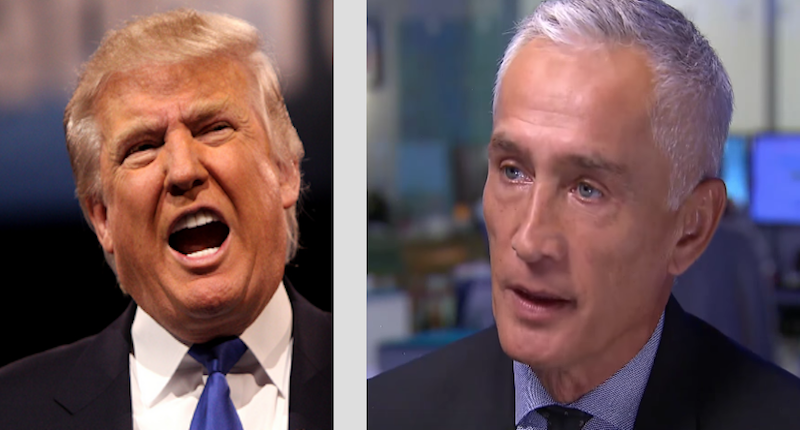Reporter Jorge Ramos suggested this week that the media could have stopped President Donald Trump if they wanted, but the Washington Post's Erik Wemple isn't so sure.
Writing in his Monday column, Wemple recalled the 2015 press event in which Donald Trump kicked Ramos out for asking questions about his allegations against immigrants.
“Excuse me, sit down, you weren’t called. Sit down, sit down. Sit down,” said Trump.
“I have the right to ask a question,” Ramos said. Trump's bouncer then kicked him out of the presser.
While some other reporters expressed their solidarity with Ramos at the time, none of them did anything. No one followed up on the question. No one walked out of the event in solidarity, refusing to give Trump any further air time. It was only the beginning of years of reporters refusing to stand up for each other. Some could have been fearful that their access would be pulled, others were likely afraid they'd be fired.
When CNN reporters Jim Acosta and Kaitlan Collins along with Playboy reporter Brian Karem were singled out by the Trump White House and removed, outlets all agreed it was wrong, but no one boycotted the press briefings. There was no unified approach to pull Trump commentators from any and all networks. Other than the lawsuits, not much was done.
"On the other hand," wrote Wemple, "News organizations responded with full condemnations of Trump’s campaign-trail atrocities, including his labeling of Mexican immigrants as rapists, his call for a Muslim immigration ban, his smear of Sen. John McCain and his degradation of the media. They also investigated Trump’s personal and business history, yielding big stories on lawsuits against him, his treatment of workers, the way he built his real estate business and many, many more."
Still, it was just the beginning of Trump's anti-media antics. Wemple doesn't think a coordinated media response would have done much.
"That’s because the media’s outrage over Trump’s indiscretions was an important motivator for Trump’s backers in the first place," he explained. "The cycle became predictable: Trump did something offensive; the media denounced him; Trump cited the media backlash as just another instance of media bias; supporters crammed into his rallies. It’s possible that 'tougher' coverage would have deepened his appeal."
In an interview with "60 Minutes" Lesley Stahl, Trump confessed that the reason he worked so hard to discredit the media was "so that no one will believe negative stories about him." He wanted the war and the media wasn't ready to fight back.
"We live in a time of media determinism, which is to say that too often, people attribute far too much power to news organizations," said Wemple. "A good example surfaced upon the publication of author Bob Woodward’s book Rage. As it turned out, Trump had told Woodward on Feb. 7 of this year that coronavirus was 'deadly stuff,' triggering a backlash against the author for holding on to that detail until this fall’s book release. Woodward could have saved lives by publishing the comment in a timely manner, went the criticism. Or: The comment would have blended into a stream of other stupid, baseless and pointless remarks from the president, affecting nothing. That is the Trump presidency."
Leave a Comment
Related Post
